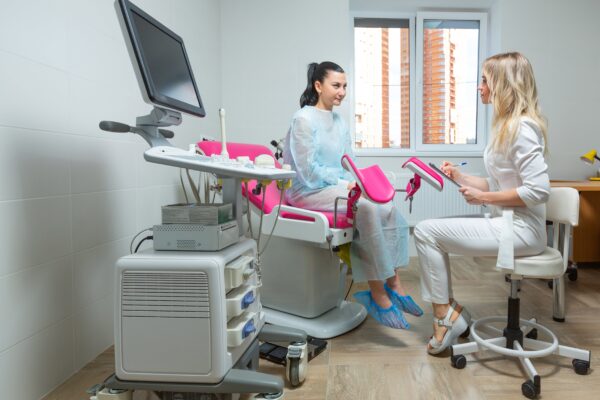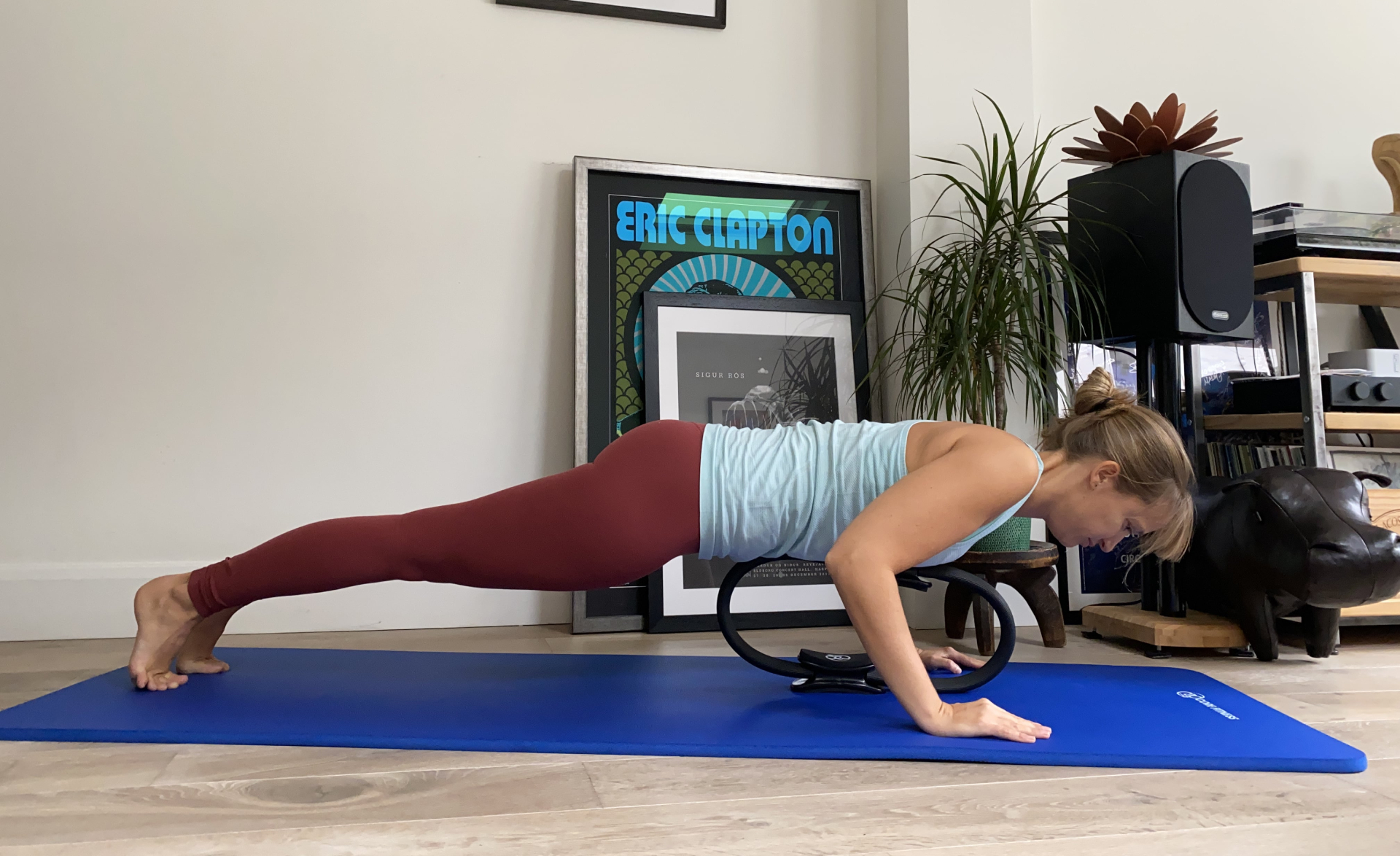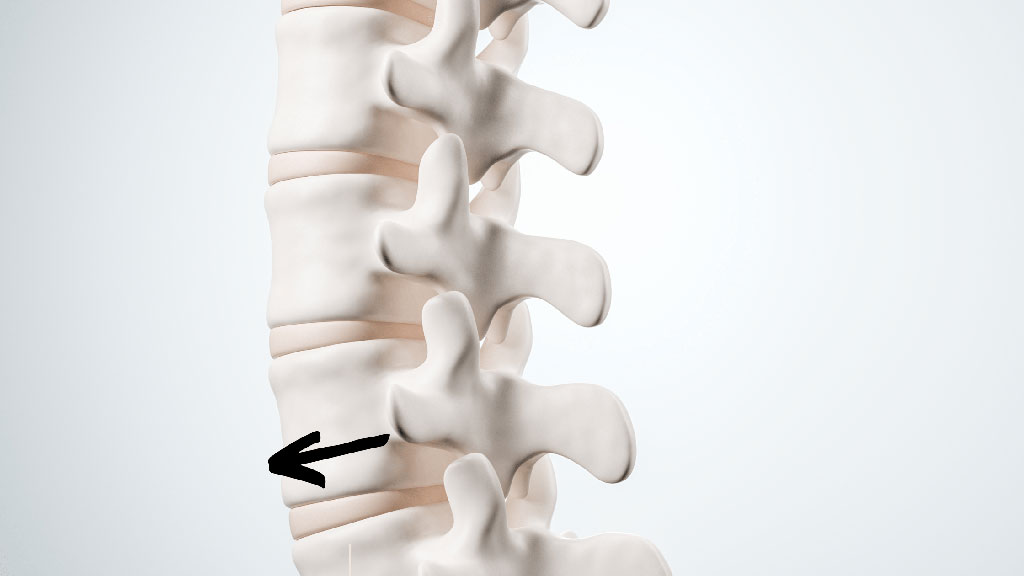As a specialist oncology and palliative care physiotherapist with over 10 years’ experience, guest writer Hannah Leach of Stronger Than Physio has worked with clients to provide rehabilitation at all stages of their cancer. March is Ovarian Cancer Awareness Month, so we have a special blog post to raise awareness of the signs and symptoms of ovarian cancer and the role of physical activity in recovery.
What are the chances of getting ovarian cancer?

Ovarian cancer accounts for 2% of all cancer cases. In the UK, 21 people are diagnosed with ovarian cancer every day. This means the chances that a person with ovaries will develop ovarian cancer in their lifetime is 1 in 52. [1]
Nearly 50% of cases are found to be advanced at the time of diagnosis [1], meaning that supporting people to identify their symptoms earlier is absolutely essential. Knowledge is power! For this reason, I will be outlining the important things to look out for, so you and your loved ones can identify signs early and seek the right advice.
What are the signs and symptoms of ovarian cancer?

Many of the symptoms of ovarian cancer are vague and non-specific, which is why it can be difficult to identify in the early stages. Some symptoms may feel similar to other conditions, for example, irritable bowel syndrome, but if your symptoms are new, persistent or you feel unsure, it is important that you seek medical advice from your GP. The most common symptoms of ovarian cancer are:
- A swollen abdomen
- Feeling full after eating small amounts
- Unintentional loss or gain in weight
- Tenderness in the lower abdomen or pelvis
- Increased need to pass urine
- Indigestion
- Changes to bowel habits (constipation or diarrhoea)
- New back pain
- Feeling tired all the time
- Unexplained vaginal bleeding [1]
Do I have ovarian cancer?

Ovarian cancer occurs when cells in the ovaries start to multiply in an uncontrolled way. You may be at higher risk of your cells start replicating in an uncontrolled way if you are known to:
- Have a faulty gene (5-15% increased risk, with BRCA1, BRCA2 or Lynch syndrome)
- Previously had cancer (particularly breast or bowel)
- Previously had radiotherapy
- Have other medical conditions, such as endometriosis or diabetes.
- Start your periods earlier in life
- Start menopause later in life
- Take HRT (4% increased risk)
- Be an active or previous smoker
- Have a high BMI [1]
What can I do to prevent ovarian cancer?
Only 11% of ovarian cancer cases are preventable [1].
Making healthy lifestyle choices, such as maintaining a healthy weight, taking moderate exercise for 150 minutes a week and not smoking, are the most important ways to reduce your risk of cancer.
Other protective factors that result in lower rates of ovarian cancer include:
- Taking the combined hormonal contraceptive pill
- Having children
- Breastfeeding
- Having a hysterectomy
- Having your fallopian tubes tied [1]
It is also important to be aware if you are someone who is at higher risk of developing ovarian cancer. Speak with your GP about possible ways of reducing this risk and be familiar with the signs and symptoms, in order to seek timely medical advice. This will increase the chance of an early diagnosis and the best possible treatment plan for you or your loved one.
Can I get ovarian cancer in my 20s?
While anyone with ovaries can develop ovarian cancer at any time, more than 50% of cases are in people over 65 years old. Ovarian cancer remains rare in those under 40 years old, but it is important to see your doctor if you experience any new or unexplained symptoms, to rule out ovarian cancer as a cause.
How will I be diagnosed with ovarian cancer?

If you are concerned about ovarian cancer, you should visit your GP as soon as possible. They will feel your abdomen and may use a small device (speculum) inside your vagina to look at the area.
If further information is needed, you will be referred to a hospital specialist for further assessment within two weeks. If you are referred to a specialist, this does not mean you have cancer, but can feel very worrying. You will usually receive your results within a few weeks, so ensure you have the right support around you during this time.

What treatment is available for ovarian cancer?

Being diagnosed with ovarian cancer can feel very overwhelming and worrying. Treatment will usually consist of chemotherapy and surgery, but your individual treatment plan will be explained to you by your specialist team. You may also be offered other medications or hormone therapy. Your treatment plan will depend on your general health, the size of the cancer and whether it has spread.
Can I exercise if I have ovarian cancer?

When you are diagnosed with cancer, there are many things that may feel out of your control. One thing that remains in your control is your lifestyle choices, such as diet, sleep and physical activity. For this reason, exercising before, during and after ovarian cancer treatment is one of the best things you can do!
Extensive research has shown that exercising during ovarian cancer treatment is safe [2] and can reduce risk of physical side effects such as fatigue and psychological effects such as depression, body image and self-esteem.
Physical activity is also shown to reduce the impact of ‘chemo brain’, which is a group of cognitive issues that occur as a result of cancer treatment [3].
Exercise, particularly a combination of strength work and cardiovascular, has also been deemed to be safe and beneficial for people with advanced stage cancers, helping to manage the side effects and improve quality of life [4].
In short, the more physically active you are during your cancer treatment, the better chance you have of a successful outcome, reduced side effects and an improved quality of life.
Staying active during cancer can be much easier said than done. A physiotherapist will be well placed to help you to manage your physical side effects of cancer treatment, to help you stay active, live your life fully and achieve your goals.
If you would like specialist support, do not hesitate to contact Hannah at Stronger Than to explore you options.
Can I do Pilates if I have ovarian cancer?
Pilates is a great form of physical activity with many benefits . Pilates can help to focus on your strength, flexibility, balance and coordination. It can be particularly beneficial if you have a cancer diagnosis. Since the most common forms of treatment for ovarian cancer are surgery and radiotherapy, embedding Pilates into your longer-term rehabilitation is a fantastic way to regain core strength and stability after the initial healing period.
Pilates requires you to get in tune with your own body, which can help you to maintain a positive relationship with your physical self. It is common for people to feel more negatively towards their bodies during cancer treatment – either psychologically, due to a feeling that your body has betrayed or let you down in some way, or physically, due to a feeling that you are unable to do what you can usually do or because your body image has changed due to surgery.
Negative feelings towards your body image and perception of self, can trigger a negative psycho-social spiral and impact your quality of life, for example, you may feel unable to engage with your friends, family or partner in the ways you want to.
Improving the functionality of your body and making physical achievements will help to redefine a new relationship with your body, what it is capable of and what you can achieve with it. It may also help you to redefine your own body image and maintain your sense of self-esteem.
If you have any questions about staying active with ovarian cancer, please get in touch with Hannah at StrongerThan or the Complete Pilates team.
Contact us
Get in touch! You can find us at one of our Pilates studios in London and speak to us about your needs. You can find us at our studios below:
– Complete Pilates City of London
Resources
- [1] Cancer Research UK. https://www.cancerresearchuk.org/health-professional/cancer-statistics/statistics-by-cancer-type/ovarian-cancer. Accessed February, 2023.
- Tamara L. Jones, Carolina X. Sandler, Rosalind R. Spence, Sandra C. Hayes, Physical activity and exercise in women with ovarian cancer: A systematic review, Gynecologic Oncology. 2020; 158(3):803-811.
- Kristin L Campbell, Kendra Zadravec, Kelcey A Bland, Elizabeth Chesley, Florian Wolf, Michelle C Janelsins, The Effect of Exercise on Cancer-Related Cognitive Impairment and Applications for Physical Therapy: Systematic Review of Randomized Controlled Trials, Physical Therapy. 2020; 100(3):523–542.
- De Lazzari N, Niels T, Tewes M, Götte M. A Systematic Review of the Safety, Feasibility and Benefits of Exercise for Patients with Advanced Cancer. Cancers. 2021; 13(17):4478.
Education is key:
These blogs are designed to give information to everyone, however, it is important to remember that everyone is different! If you have not seen one of our therapists and have any questions about injuries, what you have read or whether this may be useful to you, please just ask. We are more than happy to help anyone and point you in the right direction. Our biggest belief is that education is key. The more you understand about your injury, illness and movement, the more you are likely to improve.





